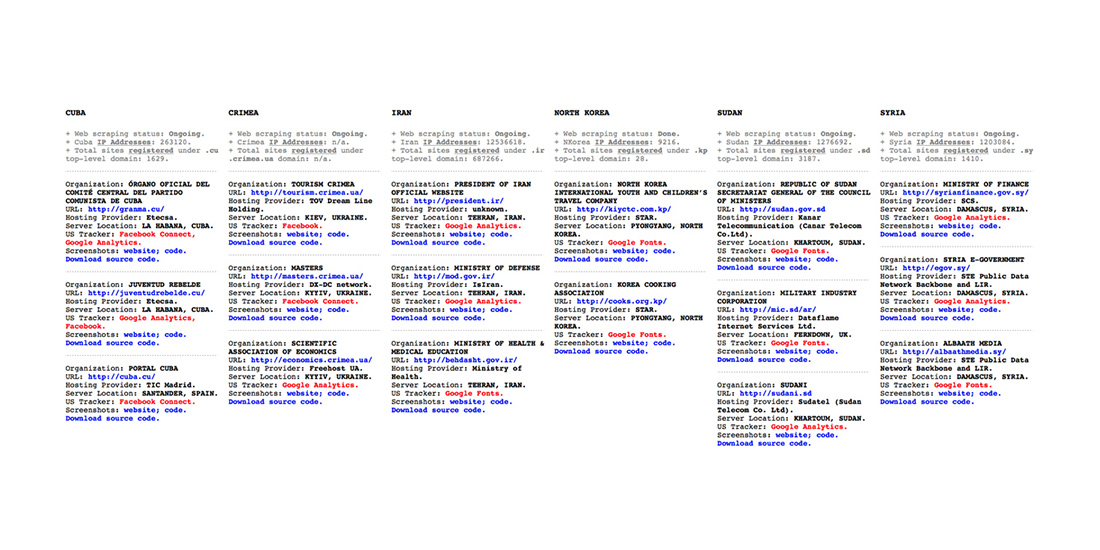Introduction by Rob Horning
Joana Moll’s "Algorithms Allowed" scrapes websites from countries that the U.S. has sanctioned or embargoed—Cuba, Iran, North Korea, Sudan, Syria, and Crimea (annexed from Ukraine by Russia)—and searches for proprietary pieces of code that emanate from American tech firms. The resulting list of sites seems to point toward forbidden trade between companies like Google and, for instance, the North Korean regime, which has used the Google Fonts service in websites.
This suggests something of the double nature of code, as intellectual property whose dissemination could be carefully tracked (much of the code appearing in embargoed countries are trackers) but whose ability to function as a mechanism of control depends on replication and broad dissemination, on its embeddedness in online infrastructures, dictating how information appears on platforms, administering levels of access, organizing the data that organizes our lives. But rather than suggest a vulnerability for tech companies, the tension implicit in how code circulates demonstrates the companies' transnational invulnerability. They transcend nation states in the way their code travels and governs communication globally.
The power exercised through proprietary code is not ultimately contingent on who owns or leases particular bits of it but in the way it maintains algorithmic systems that affect the circulation of every kind of information online. Regardless of who is creating or disseminating a piece of content, or why, the kinds of code Moll tracks in this project imposes a set of decisions about how that content can appear and what kinds of derivative information flows its appearance will trigger. As she notes, “At this point the usually unacknowledged agency of code is undeniable.”
